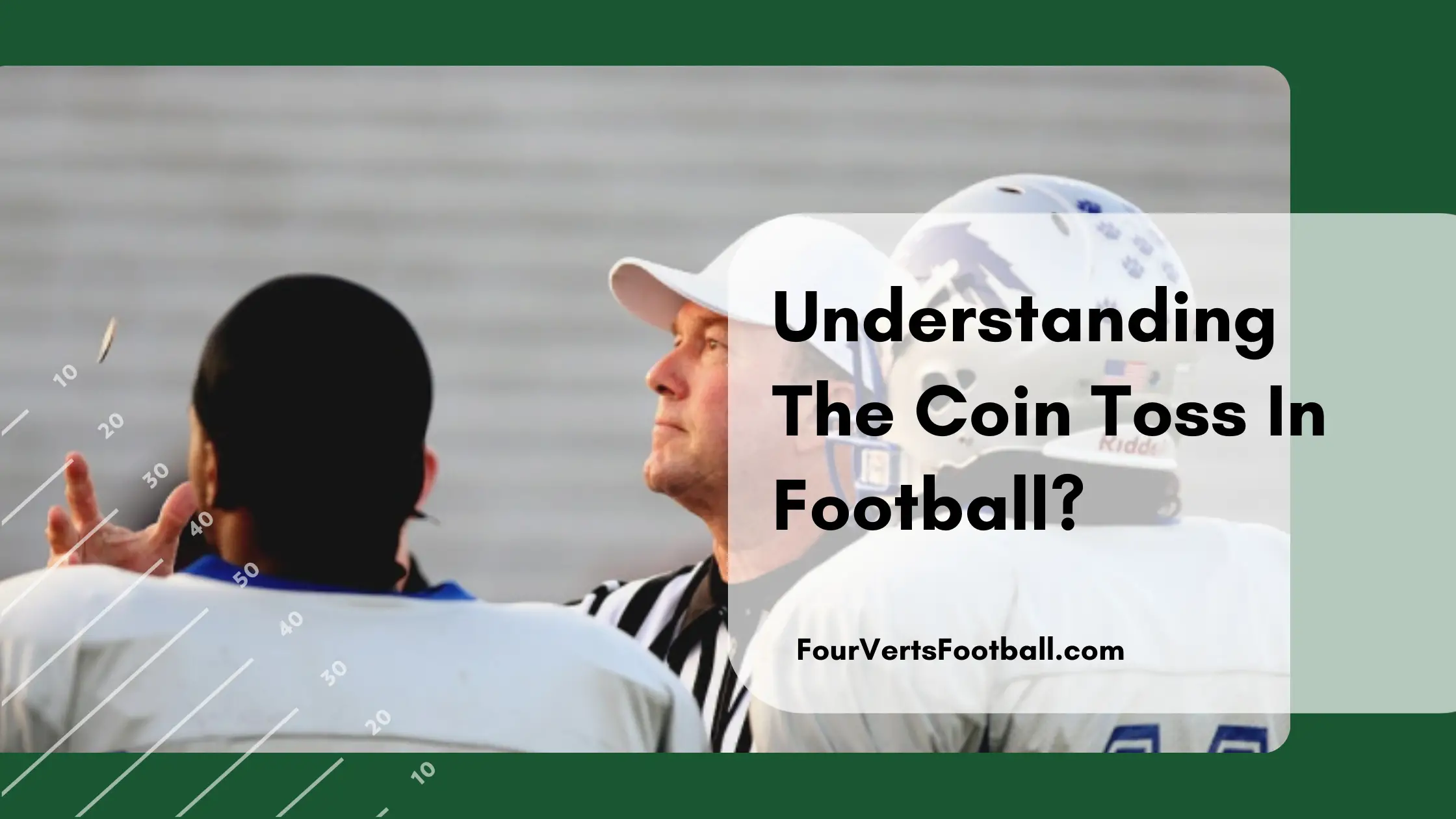If you have ever watched a football game you have likely noticed the coin toss which takes place to start the game.
In each game, the referee will flip a coin to determine which team is going to start with the football.
The away team will be the ones to choose which side of the coin they want for the toss. This decision will be made by one of the captains that have come out for the coin toss.
The referee will clearly identify which side of his coin is heads and which is tails. The referee will then ask the away team captain to “call it in the air”. This means the captain must call heads or tails before the coin is caught or hits the ground.
The referee will then look at the coin and declare which team won the toss.
But when a team wins a coin toss they are not automatically getting the ball but rather getting the choice of several options.
What Happens When You Win A Coin Toss In Football?
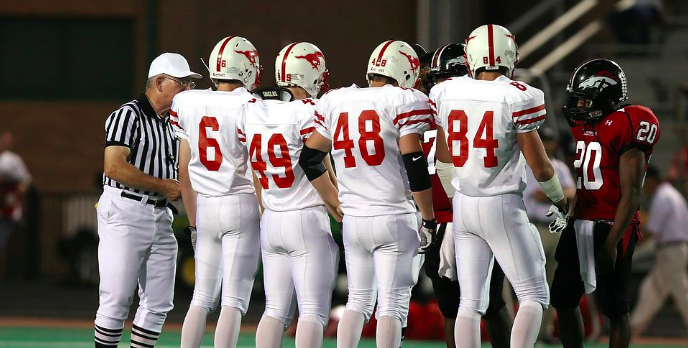
It is a common misconception that when a coin toss is won the team will simply start with the ball. This is often what a team will decide to do but there are actually several options they can choose from.
Choosing A Direction
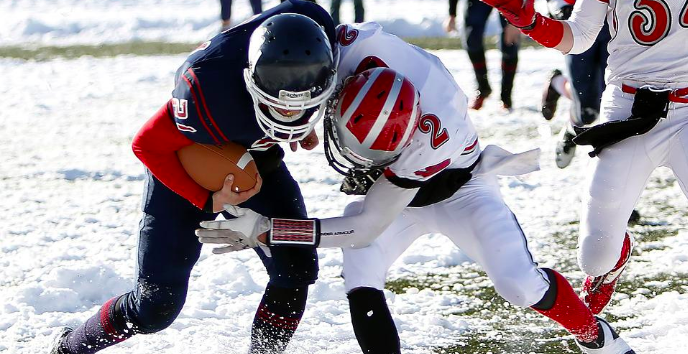
Teams may choose a direction they want to play towards after winning the coin toss. If you decide to choose a direction that means you will forfeit your right to decide who gets the ball.
Choosing a direction to play towards is often dependent on weather. Certain stadiums will have obstacles such as wind or sunlight that may make it more difficult on an offense.
Teams may choose a specific direction to play towards due to these obstacles. This is especially relevant in overtime because teams will only play in one direction throughout overtime.
Teams usually switch directions after each quarter but since overtime is only a single quarter the direction is going to be a bigger factor.
Choosing The Ball
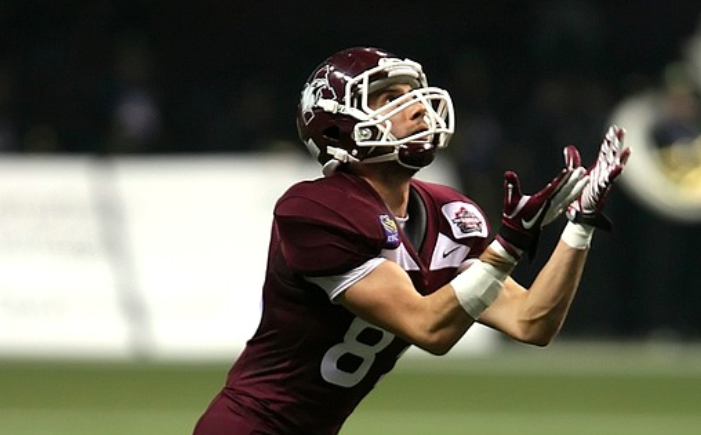
Choosing the ball is one of the most common options chosen when it comes to winning a coin toss. With this decision, you are securing that you will get the first possession of the football game.
This is almost always the choice when it comes to winning a coin toss in overtime. This is because the first team to score a touchdown in overtime automatically wins the game.
This makes getting the first possession a huge advantage when going to overtime.
Choosing To Defer
The final option that is available when a team wins a coin toss is to defer. Deferring is essentially a way of saying that you will not choose any option and instead will defer your choice of these options to start the second half.
Deferring the coin toss means you are giving the opposing team the option to choose as if they won the coin toss.
This means they will likely choose to get the ball to start the game and your team will be able to get the ball to start the second half. Choosing to defer is a fairly common choice when it comes to coin tosses in the NFL.
In short, if you choose to defer you are deferring your choice until the second half instead of making the choice to kickoff or receive to start the game.
Choosing To Kick
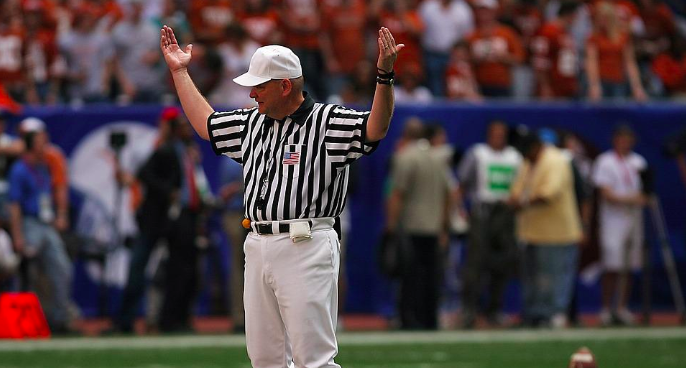
One of the other options a team may choose when winning the coin toss is to kick the ball. This simply means to start the game the team that won the toss will kick off to their opponent.
This is a very rare option because if you choose to kick to start a game you are effectively giving up a possession. Choosing to kick does not mean you get to start with the ball in the second half.
In most cases choosing to kick is done by accident when a team is actually trying to defer but instead chooses to use their coin toss selection on kicking off the ball.
The only reason teams will choose to kick on purpose would occur in overtime, especially in bad weather.
Say for example if there is inclement weather making it very hard to move the ball.
In this situation, a team may want their opponent to start with the ball. If the defense is able to get a quick stop this should give the offense great field position and a chance to win the game.
Overtime coin tosses
One important thing that you should know about coin tosses is that they are going to play out a little differently in overtime.
In NFL football, regular season games will end if a team scores a touchdown on their first drive. In the playoffs, teams will have a chance to match this score by scoring a touchdown on their next drive.
Either way scoring quickly in overtime is going to make your odds of winning the game significantly increase.
For this reason, you will find that teams will almost always choose to receive the ball when it comes to overtime coin tosses.
Choosing to defer is quite common for NFL teams to start a game. But once it gets to overtime you will find that teams will almost always choose to receive the ball if they win the toss.
The NFL recently changed the rule of scoring in playoff games due to the importance of the overtime coin toss.
A crazy game between the Buffalo Bills and the Kansas City Chiefs changed this rule due to the coin toss more or less deciding who won the game due to the ease the offenses were scoring with.
Which team calls the coin toss?
One question fans often have about the coin toss is which team calls the coin in the air.
The away team is going to be the team that calls the coin toss each game.
In football home teams already have a fairly large advantage on the field. Home teams do not have to travel and have the advantage of the home crowd throughout the game.
Giving the away team the chance to call the coin toss is the least they could do.
Although in the end calling the coin toss isn’t going to determine who wins as the odds are going to be 50/50 either way.
Who calls the coin toss in the Superbowl?
One fact known by many football fans is that unlike most NFL games the Superbowl is not played at home.
In the playoffs, the higher-seeded team is going to be playing at home. Though in the Superbowl the location will already have been selected before the season starts.
For this reason, there isn’t a real home team in the Superbowl. Regardless of the location, the home team in the Superbowl is based on a rotation between the NFC and AFC.
Each year the AFC representative or the NFC representative will be the home team in the Superbowl. The home team will rotate between the AFC and NFC each year.
The team which is considered the away team that year will be the one to flip the coin.
In other words, the Superbowl coin toss will be called by the team which is considered the away team based on their conference.
